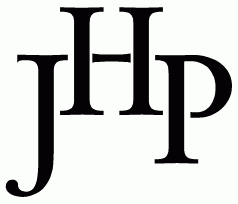| ISSN 0022-5053 (print) E-ISSN 1538-4586 (electronic) Last updated: June 2009 © Journal of the History of Philosophy, Inc. |
|---|
|
The Board of
Directors is pleased to announce the
recipients of the 2008 Kristeller-Popkin
Travel
Fellowships:
Shannon Dea (University of Waterloo) Professor Dea will use her fellowship to examine the more than 1300 volumes from Charles Sanders Peirce’s personal library, among them a number of volumes concerning Spinoza and early modern philosophy. She plans to examine these texts for annotations, page-cuts, and other features as part of a larger project of engaging Peirce’s well-known but seldom discussed references to Spinoza as a distinctively Peircean variety of pragmatist. This project will offer a novel account of Spinozism. It also will shed light on the character of Peirce’s own distinctive doctrine and some of its differences from the pragmatism of James, Schiller, and Dewey. Jennifer Mensch (Pennsylvania State University) Professor Mensch will use the fellowship to visit the Bayerische Akademie der Wissenschaften, which houses the Schelling archive. She is interested in the early reception of Schelling’s Letters on Dogmatism and Criticism [1794-96] as well as his System of Transcendental Idealism [1800] and, in particular, the comparisons made between Schelling’s and Kant’s account of intellectual intuition. This discussion of the role assigned to intellectual intuition in Descartes and Kant will be part one of the monograph's larger effort to describe a historical transformation at work in the account of knowledge. Descartes' is a bifurcated vision, spanning, as it does, the tail-end of the Renaissance and the inception of the New Science. His appeal to intellectual intuition is in fact at odds with the mechanical philosophy for which he is more generally identified. But while Kant's rejection of intellectual intuition is in keeping with what will come to be the prevailing attitudes of Enlightenment "science," he too marks a transitional moment in history and his work reflects this. Most of the German Idealists--Fichte, Schelling, Hölderlin, Goethe--understood themselves at one point or another to be working both against and with Kant and to be engaged, albeit in very different ways, in projects shaped in part by the role of intellectual intuition. Her discussion concentrates on Schelling, who was initially convinced that the proper understanding of intellectual intuition could end the false sense of division existing between "the real" and "the ideal," that intellectual intuition, in other words, could grasp a truth no longer dominated by the Kantian antinomies of nature and freedom.
|
|---|
